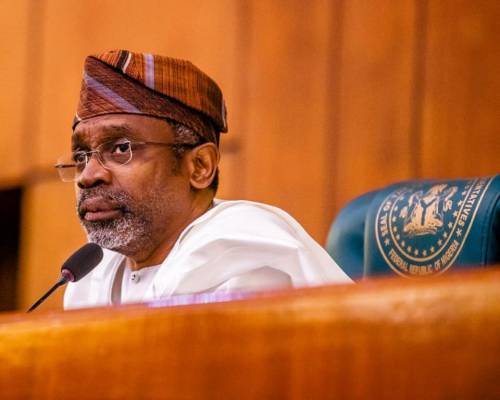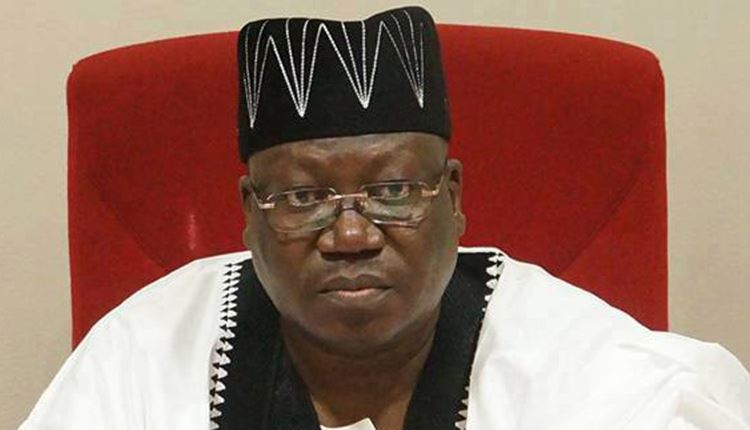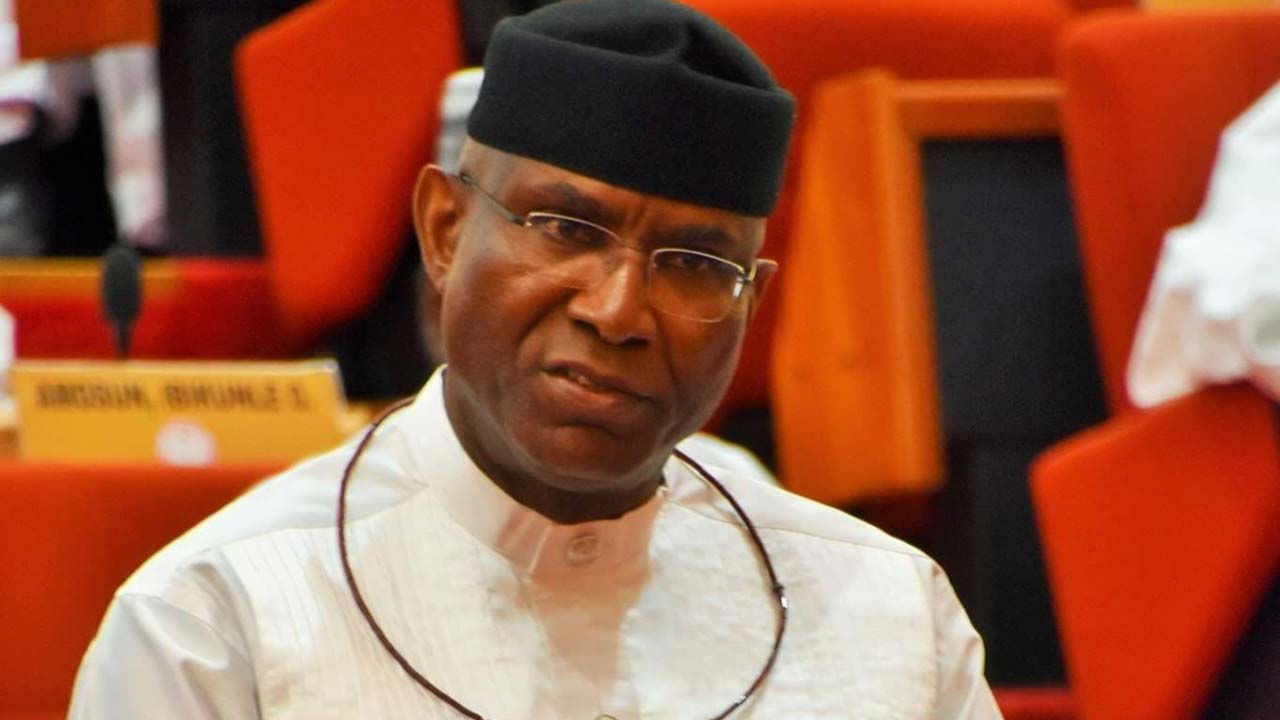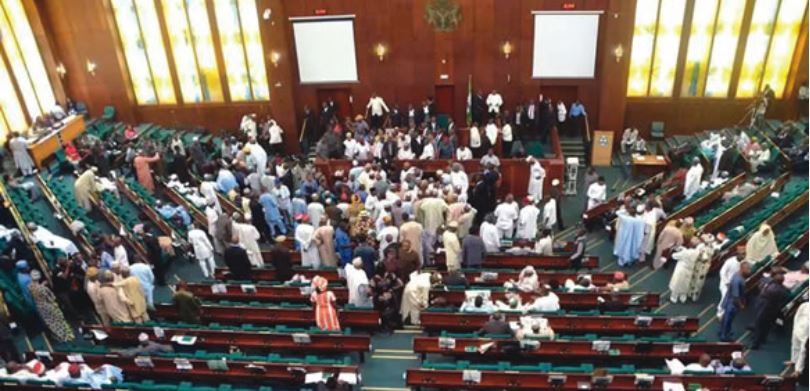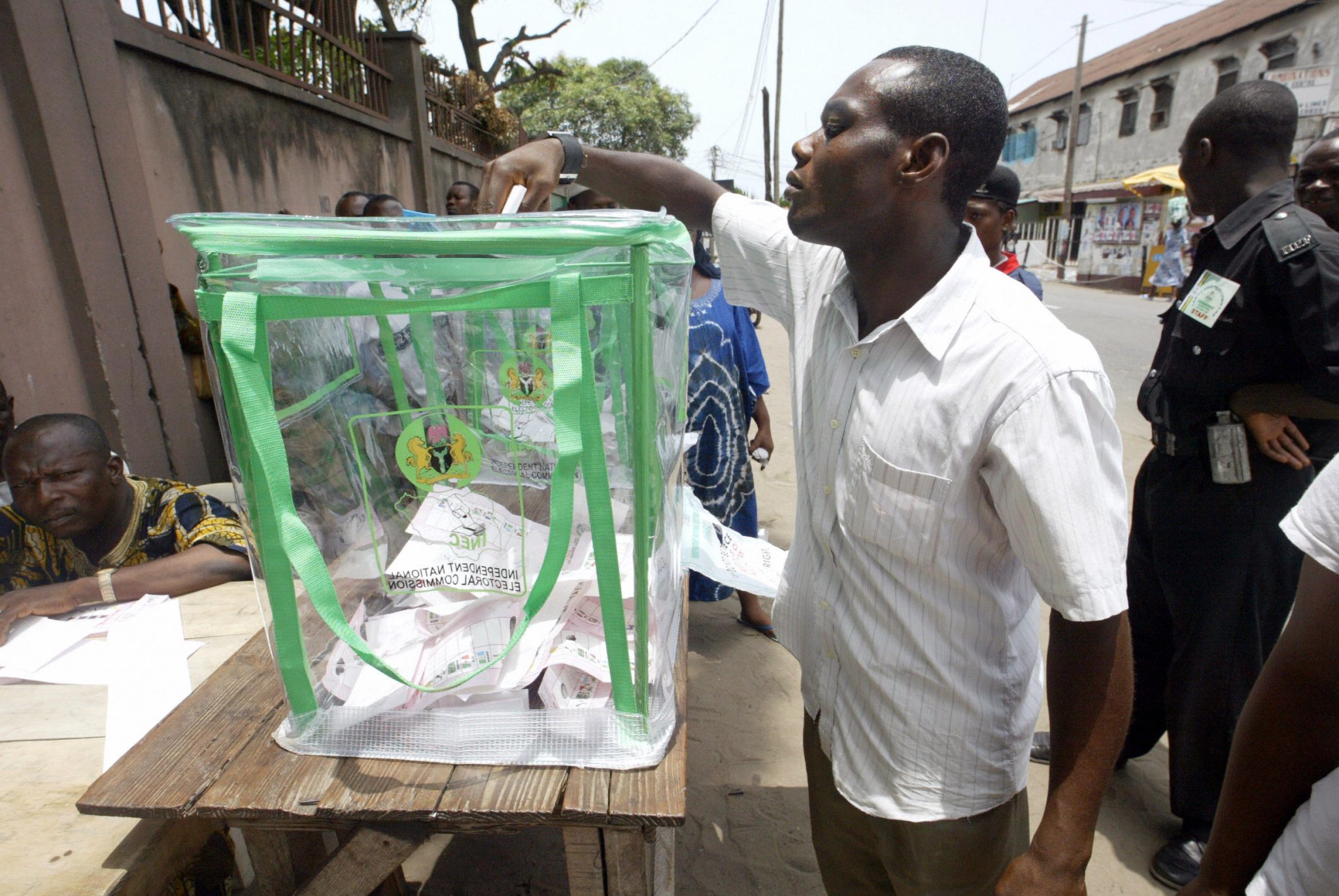Senate President Ahmad Lawan says the ruling given by the Federal High Court in Abuja, will not stop the National Assembly from amending the Electoral Act 22.
The court in a ruling delivered on Monday by Justice Inyang Ekwo, in an ex-parte application by the People’s Democratic Party(PDP)barred President Muhammadu Buhari, Attorney General of the Federation and the Senate President from amending the newly Electoral Act 2022.
The Court maintained that the Electoral Act having become a valid law could not be altered without following the due process of law.
President Buhari, had in a letter dated Feb 28 requested the National Assembly to amend the Electoral Act.
Buhari had drew the attention of Senate to the provisions of Section 84(12), which, according to him, constitutes a defect, having noted that it was in conflict with extant constitutional provisions.
Lawan ,while reacting to the ruling by the Federal High Court after the Electoral Act Amendment Bill scaled first reading at plenary, said the ruling violated provisions of the 1999 Constitution )as amended) on Separation of Powers.
“I find it necessary to talk to this at this point, because our governance system is based on the Presidential system of government where there is clear cut separation and exercise of powers.
“The Judiciary, under no circumstance cannot stop the National Assembly from performing its legislative duties.
“We know what our due processes are, just like we wouldn’t venture into what the Judiciary does, it should also understand that we have our processes.
“If the President writes to the National Assembly to request for an amendment, that is within his competence, and it is for the National Assembly to decide whether it agrees with the request of Mr. President or not.
“But to say that we cannot consider it, is to ask for what is not there to be given. I believe that Members of this National Assembly know their work and will do what is right.
“This is due process, we are not doing anything outside of the law, whether it is Mr. President or any Nigerian who feels very strongly about an amendment, this National Assembly is ready to take in and consider.
“It is within our exclusive right to consider whatever request we receive from Nigerians, whether through the Executive arm of government or through our colleagues via private members’ bill.”
Sen. Gabriel Suswam,(PDP-Benue)in his contribution said:”I agree with what you have said, the court cannot stop us from making laws.
” The problem with the letter sent to us by the President was that there is a part of it that interpreted the law we made.
“I think that is the only part that the court can act on, because tPresident Buhari said that the law the National Assembly made is ultra vires the Constitution, which is not his responsibility.
“I think, to that extent, the court can comment on that and not on the fact that we are making laws.”
Sen. Ike Ekweremadu(PDP-Enugu), while citing Order 52(5) of the Senate Standing Order, called on the Senate to abide by the court ruling.
He said: ”when we were waiting for the President to assent to the Electoral Act, some of us made a suggestion we believed would help, namely that the President would sign and then we would commit ourselves to amending that section.
“Mr President, I also offered to help in redrafting it, now we have a situation where they’ve told us there’s a Judicial restriction on us to do that.
“Mr President, I agree with you entirely, but the principle as all the lawyers here know, is that if there is a court order, no matter how wrong it is, our responsibility as individuals and citizens is to respect it.
“The argument you have raised is what we are going to raise in response.”
The Senate President, while giving his ruling to the Order raised by Ekweremadu, said,” this has nothing to do what happens in the court.”
Ekweremadu, however, advised the National Assembly to discharge the court order via the court.
“I think the argument you’ve raised is valid, but this point is what we have to present in court to discharge that order.
“We cannot sit and appeal on a matter that has already been given an order in court. I think we should exercise caution in siting a judgment over a matter that an order has been given.
“What we should do is to brief our lawyers to go and discharge the order, instead of sitting here and disobeying court order, is is not good for us and our system, that is calling for anarchy.”
Responding further, Lawan said: ”my opinion about anarchy is when either arm of government decides to go into the exclusive preserve of the other.
“If the Judiciary wants to come into the Legislature to decide when we sit and when we don’t, then that’s anarchy.
“If the Judiciary would simply say we are not to consider this and that, and we obey those kind of rulings, that is anarchy, because it is emasculating the legislature and that is not supposed to be .
“We will continue with what we are supposed to do because that is our calling. We are just advising that the Judiciary should please help us develop this democracy, because this arm of government is the least developed and if we are allow these kind of rulings, we may end up going back 23 years ago.
“I believe that what we are saying is the same, but we are emphasising that that judicial pronouncement will not stop us from doing what is right and our work here.”

